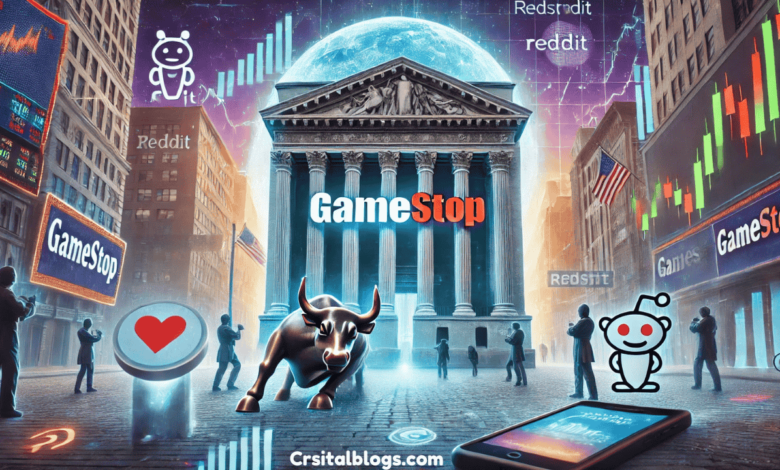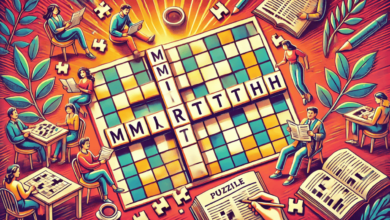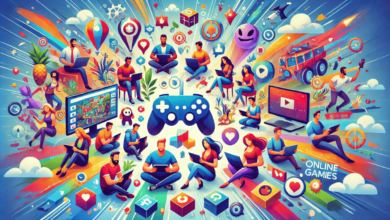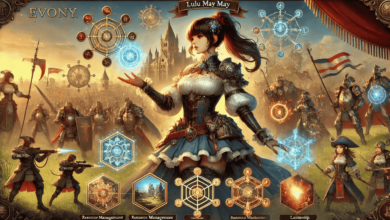GameStop February to October: Decoding the Retail Revolution – GameStop February Octoberirwindecrypt

In early 2021, GameStop, a video game retailer perceived by many as struggling and outdated, suddenly became the centerpiece of a financial saga that captured the world’s attention. The term GameStop February Octoberirwindecrypt encapsulates a period marked by extreme stock volatility and strategic shifts, fundamentally altering retail trading and investment perceptions. This article delves into the dynamics between February and October 2021, exploring the rise, the strategic pivots, and the lasting impacts of this unprecedented market phenomenon.
The Surge: GameStop’s Unexpected Rise
The GameStop saga began in earnest in late January 2021, when a sudden surge in its stock price was propelled by a group of retail investors from the Reddit community r/WallStreetBets. These investors noticed several hedge funds had taken significant short positions in GameStop, betting its stock would decline. In a classic case of what is now referred to as a “short squeeze,” retail investors began buying up GameStop shares, driving up the price and causing significant losses for the short sellers.
The Role of Social Media
Social media played a pivotal role in GameStop’s rise. Platforms like Reddit, Twitter, and YouTube were crucial in mobilizing individual investors, who shared trading tips and encouragement, creating a sense of community and collective purpose. This period highlighted the power of social media to influence financial markets, challenging the traditional dominance of institutional investors.
Octoberirwindecrypt: Decoding Market Dynamics
As the narrative unfolded from February through October, the term Octoberirwindecrypt symbolized the efforts to understand and analyze the aftermath and ongoing market dynamics that this event triggered. Analysts and commentators used this term to discuss how retail traders could continue to influence the stock market, the responses from institutional investors, and the potential for regulatory changes.
Strategic Shifts and Digital Evolution
During this period, GameStop began to pivot strategically. Under the leadership of Ryan Cohen, co-founder of Chewy.com and a major shareholder, GameStop announced plans to transform from a brick-and-mortar retailer into a more digital-focused entity. Initiatives included expanding into e-commerce, exploring a digital marketplace for gaming, and investing in blockchain technology and NFTs. This pivot aimed to capitalize on the growing interest in digital and decentralized technologies, positioning GameStop at the forefront of a potential retail and digital revolution in gaming.
Regulatory and Market Implications
The GameStop phenomenon also prompted significant scrutiny from regulators and policymakers. The U.S. Securities and Exchange Commission (SEC) and other regulatory bodies began examining the roles of short selling, online trading platforms like Robinhood, and social media in stock market volatility. Discussions around potential regulatory reforms to protect retail investors and ensure market stability became more prominent.
The Cultural Impact and Legacy
GameStop’s story transcended financial markets, sparking debates about economic inequality, Wall Street’s power dynamics, and the rights of individual investors versus institutional entities. It became a cultural icon of resistance against established financial institutions, celebrated by many as a victory of the “small investor” over the Wall Street elites.
Conclusion: The Future Beyond October
As we look beyond October 2021, the legacy of the GameStop saga continues to unfold. The event has changed the company and impacted the stock market and investing culture. Retail investors are now more empowered and have a more significant presence in the market, while companies like GameStop are exploring new business models that align with technological advancements and changing consumer behaviors.
FAQs on GameStop February Octoberirwindecrypt
What triggered the dramatic rise in GameStop’s stock price in early 2021?
Retail investors from the Reddit community r/WallStreetBets initiated the GameStop stock price surge. They identified hedge funds with prominent short positions in GameStop and began a coordinated effort to buy shares, causing a “short squeeze.” This forced short sellers to cover their positions at increasingly higher prices, further driving the stock price.
How did social media influence the GameStop phenomenon?
Social media platforms like Reddit, Twitter, and YouTube played a crucial role by enabling retail investors to share strategies, encourage participation, and create a sense of community. These platforms amplified the movement, challenging the traditional dominance of institutional investors in the stock market.
What is the significance of Octoberirwindecrypt in the context of GameStop?
Octoberirwindecrypt symbolizes analyzing and understanding the events and market dynamics that unfolded from February to October 2021. It reflects discussions about retail investors’ influence on markets, the responses from institutional investors, and the regulatory implications of such unprecedented market activity.
How did GameStop respond to its newfound prominence during this period?
GameStop, under the leadership of Ryan Cohen, pivoted toward digital transformation. The company focused on expanding its e-commerce capabilities, exploring blockchain technology, and developing a digital marketplace for gaming. These strategic shifts aimed to modernize GameStop’s business model and position it for future growth in the digital economy.
What regulatory and cultural impacts emerged from the GameStop saga?
The GameStop phenomenon led to heightened regulatory scrutiny, with the SEC and other bodies examining short selling, social media’s role in market volatility, and the practices of trading platforms like Robinhood. Culturally, it symbolized resistance against Wall Street elites, sparking debates about economic inequality and empowering retail investors in financial markets.




